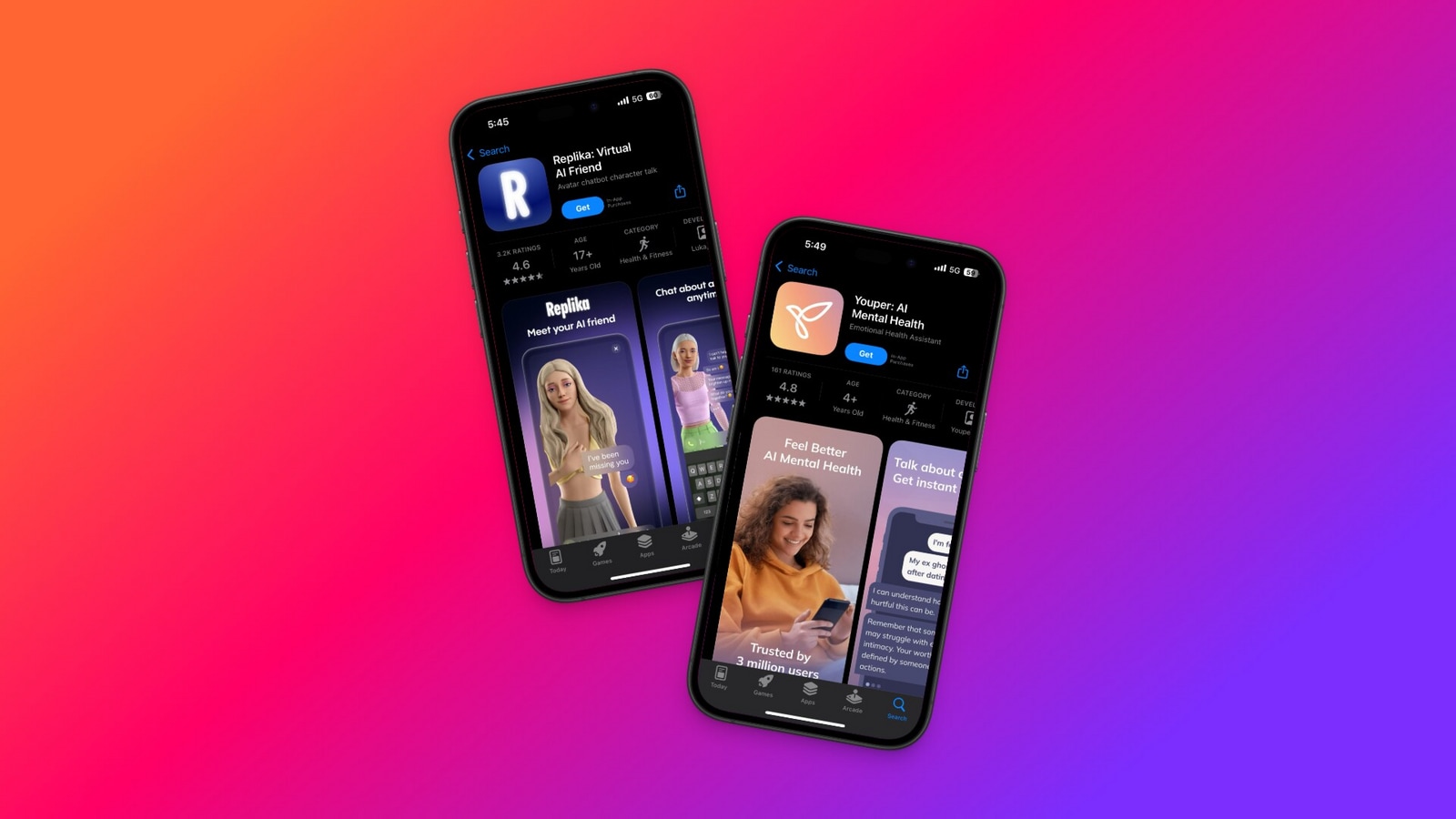The surge of AI-powered mental wellness tools in 2025 is reshaping how people access support. These AI companions offer users a judgment-free space to manage anxiety, track moods, and build healthier habits. With round-the-clock availability, affordable pricing, and evidence-backed methods, they’re helping bridge crucial gaps in traditional mental healthcare. This led to us using and reviewing some popular apps out there.

What makes an effective AI mental health companion?
AI companions are apps or chatbots that combine conversational AI, cognitive behavioural therapy (CBT), and mood tracking to support users’ mental wellness. The best of them simulate real conversations, prioritize user privacy, and deliver interventions grounded in psychological research. Many also offer a hybrid approach, connecting users to trained coaches or therapists if needed.
Top AI companions of 2025: Features and Impact
Replika: Known for adaptive conversations that evolve with users over time. Its mood tracking and open-ended dialogues make it a safe space for reflection and emotional processing. Over 10 million users turn to Replika for companionship and stress relief.
Woebot: Offers CBT-based interventions, emotional check-ins, and practical coping strategies. Clinical studies show users experience reduced anxiety and depressive symptoms in just two weeks of regular use.
Wysa: Blends AI chatbot support with human coaches. It’s trusted for its use of CBT, DBT, and mindfulness to support users dealing with stress, anxiety, and burnout. Especially valued for its clinical transparency and bilingual accessibility.
Youper: Uses generative AI for mood tracking and emotional coaching. It’s clinically validated and designed to support users with anxiety and depression through short, daily interactions.
Mindsera: Pioneers AI journaling with emotional analytics and writing prompts. It helps users process feelings and develop self-awareness through guided reflection.
Real-world benefits and limitations
AI mental health tools offer 24/7 support, personalization, and affordability. They’re ideal for daily check-ins and emotional resilience. But they’re not a replacement for therapy in severe cases, and data privacy remains a key concern. Some users have also raised concerns about being misdiagnosed by AI. Based on our observation, AI has a highly affirming tone instead of critical, reinstating the behaviour of the user at times.
AI mental health companions are becoming essential tools for self-care in 2025. While not a substitute for therapy, they offer accessible, supportive ways to manage everyday mental wellness and are worth exploring as part of a holistic mental health routine.
























